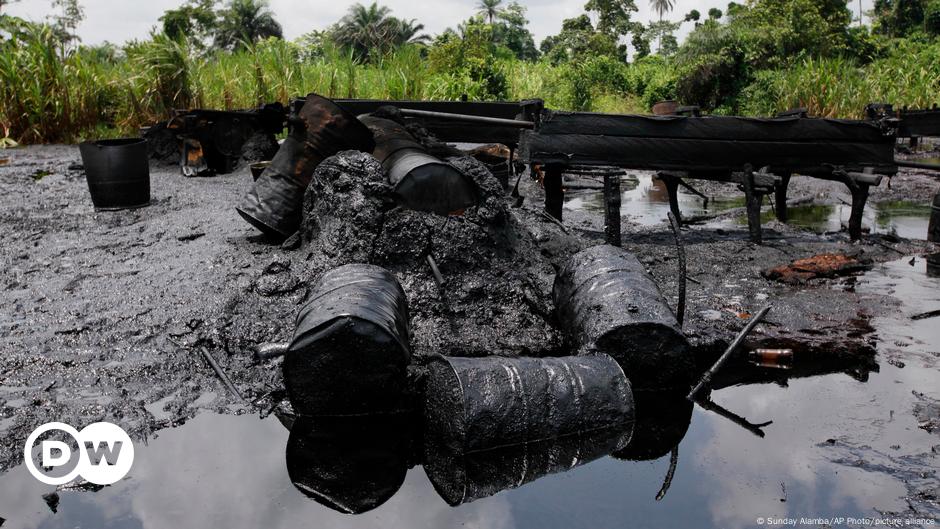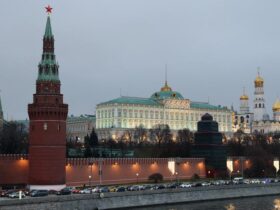Nigeria’s army and security forces have dealt a blow to the illegal oil trade. By destroying 56 bunkering sites, the authorities are attempting to destroy the lifeblood of this underground economy.
Despite being Africa’s largest crude oil producer, Nigeria has faced significant setbacks due to large-scale oil theft and pipeline sabotage. These issues have reduced production, reduced exports, crippled government finances and posed a serious challenge to President Bola Tinubu.
In the latest crackdown, the country’s military and other security agencies have seized at least 88 cooking drums and recovered 1.2 million liters (317,000 gallons) of stolen crude oil. Authorities have destroyed at least 15 illegal refining sites in Okorodia Forest, Yenagoa, Bayelsa State. Thousands of liters of stolen crude oil and illegally refined automotive gas oil were also recovered.
Seventeen suspects were also arrested and vehicles and oil refining equipment seized.
Between 2009 and 2020, Nigeria lost approximately 620 million barrels of crude oil, valued at $46 billion (€42 billion), according to the Nigerian Extractive Industries Transparency Initiative, which seeks accountability in the management of the country’s oil, gas and mining revenues. Promotes.
Oil theft is becoming ‘sophisticated’
Oil theft is not new in Nigeria, but its scale and complexity has increased in recent years. The oil-rich Niger Delta is considered the main hotspot.
According to Umaru Ahmadu, a financial advisor on oil and gas, oil theft will continue unless the government focuses on social and economic justice in the sector. Successive governments have neglected residents of oil-producing areas, he told DW.
He said, “They do not have infrastructure, they do not have basic social and economic support. There is no social safety net. They have lost their means of livelihood. Their environment is endangered and completely destroyed.” Has gone.”
Ahmadu believes that as long as the government continues to mine mineral resources without regard for the local community, “the possibility and tendency to continuously cause harm to the government by stealing crude oil by refining it in illegal refineries will not stop.”
“As long as we keep pretending about their issues and no one is interested and we just extract their crude, destroy their environment and get no proper financial reward, they will always resort to self-help through theft of crude. oil or refining it illegally,” Ahmadu stressed that by addressing these issues, the government can find permanent solutions to the problems caused by crude oil production.
holding officials accountable
Benjamin Boakye, executive director of the Africa Center for Energy Policy in Ghana, told DW that the situation in Nigeria is that people are getting away with crimes and are only looking for money and are not responding to regulation and protecting the environment.
Boakye said this issue persists because the same politicians and security agencies responsible for preventing environmental pollution and enforcing laws often operate within the same framework.
“Unless there is political will to clean up the mess and hold people accountable, we will just keep talking about this and not address the bigger picture,” he said.
He emphasizes the need to make people accountable for the power and mandate given to them to protect the resources of the state and ensure that they do not allow profit-motivated individuals to destroy the environment.
impact on environment
Studies have shown that oil theft has polluted the air, land and water, with devastating effects on the health and livelihoods of residents.
Ahmadu shared similar sentiments, saying that illegal mining has a significant impact on the environment “because these people are not experts; they are not experts.”
“They do this work in a very poor manner. As a result, the environment is affected,” he said. In extreme cases, incidents of fire have occurred due to oil theft.
Ahmadu said the Nigerian government is suffering massive revenue losses due to the continued destruction of pipelines and other oil infrastructure, which is hampering progress.
Edited by: Crispin Mavakideau






Leave a Reply